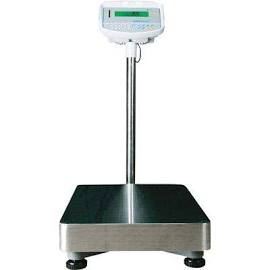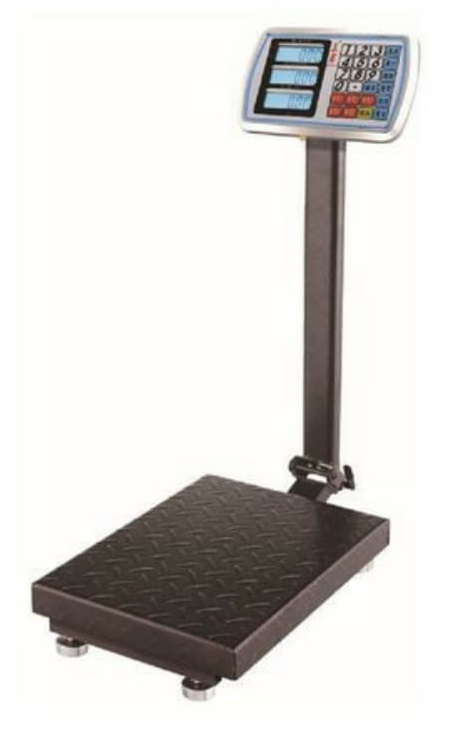How Industrial Scales Improve Efficiency in Manufacturing and Warehousing
How Industrial Scales Improve Efficiency in Manufacturing and Warehousing
Blog Article
Just How Commercial Scales Job: A Comprehensive Review for New Users
Understanding the auto mechanics behind commercial ranges is critical for new users who intend to ensure accuracy in their dimensions. These tools count on load cells and strain gauge innovation to convert weight into a measurable format, yet the subtleties of their procedure prolong beyond mere functionality. From the various kinds readily available to the crucial strategies for appropriate usage and maintenance, each aspect plays a significant duty in accomplishing trustworthy results. As we explore these components, one have to take into consideration exactly how these aspects interact to boost efficiency in diverse industrial applications.
Fundamentals of Industrial Scales
Industrial scales are necessary tools made use of across numerous markets, including manufacturing, logistics, and farming, to guarantee exact weight measurements of hefty loads. The fundamental concept behind commercial scales entails the conversion of weight right into a quantifiable form that can be shown digitally or analogically. These scales employ different mechanisms, such as tons cells or mechanical bars, to identify the weight of things put upon them.

In enhancement to their dimension capacities, commercial ranges are made to withstand severe atmospheres, including durable building and construction that stands up to dirt, wetness, and heavy influences. Calibration and upkeep are essential to ensure precision, as even minor discrepancies can result in considerable monetary ramifications. By understanding the basics of commercial scales, individuals can appreciate their significance in different industrial applications.
Sorts Of Industrial Scales
Various types of commercial ranges satisfy the diverse demands of different industries, each developed to deal with particular weighing tasks with precision and integrity. Among the most usual kinds are floor ranges, which are perfect for weighing hefty and bulky things. These scales typically include large systems and can accommodate palletized items, making them vital in warehouses and delivery centers.
One more type is bench scales, which are commonly used for smaller products in production and retail setups. They provide exact measurements for items that need accuracy, such as chemicals or components in assembly lines (Industrial Scales). For mobile operations, mobile ranges offer adaptability and simplicity of transportation, appropriate for fieldwork or temporary setups
Additionally, specialized scales like checkweighers are utilized in production lines to maintain quality control by ensuring that items fulfill weight requirements. Each type of industrial scale plays an essential role in enhancing operational performance and precision throughout numerous fields.
How Evaluating Systems Job
Considering devices are important elements that allow accurate dimension of mass throughout different industrial scales. These systems use different principles of physics and design to supply exact weight readings, vital for inventory monitoring, quality assurance, and compliance with governing requirements.
One common sort of evaluating mechanism is the lots cell, which operates on the principle of strain gauges. When a lots is applied, the lots cell warps somewhat, generating an electrical signal symmetrical to the weight. This signal is after that exchanged an understandable weight measurement by the scale's electronic devices.
Another extensively utilized device is the mechanical equilibrium, which utilizes a system of levers and weights. Industrial Scales. This approach depends on the concept of balance, where the weight of the object being gauged is stabilized versus known weights, permitting straight measurement
In addition, pneumatic and hydraulic scales leverage liquid characteristics principles to gauge weight. These systems make use of the stress applied by a load to figure out weight, offering high precision for enormous loads.
Correct Usage Methods
When making use of industrial scales, sticking to correct usage methods is vital for guaranteeing precise dimensions and maintaining tools honesty. First and foremost, it is necessary to pick the suitable scale for your certain application, as ranges vary in capability and accuracy.
Prior to weighing, guarantee that the range is positioned on a secure, level surface area without disturbances or vibrations. This useful link will assist to lessen errors triggered by external elements. Additionally, calibrate the scale according to the producer's specs prior to utilize, guaranteeing that it is operating appropriately.
When positioning things on the range, distribute the weight uniformly to prevent tipping or damaging the equipment. Constantly permit the scale to support prior to videotaping the weight, as fluctuations may take place throughout preliminary placement. For bulk products, make use of containers that are ideal for the scale size to avoid overloading.
In addition, stay clear of placing chilly or extremely warm things straight on the scale, as temperature level variations can influence precision. Maintain the evaluating platform complimentary and clean of debris to avoid contamination and make sure reputable results. By adhering to these techniques, customers can maximize the efficiency and longevity of their commercial scales.
Upkeep and Calibration Tips
Making certain the long life and accuracy of industrial ranges needs diligent upkeep and regular calibration. A precautionary upkeep routine is essential; it ought to consist of regular evaluations to recognize wear and tear, especially on lots cells and other delicate parts. Frequently cleansing the scale's surface and making sure the bordering area is without particles will aid preserve its integrity and efficiency.
Calibration click here for info is just as important and must be executed at routine intervals or whenever the range experiences significant adjustments in temperature level, humidity, or physical variation. Utilize licensed calibration weights that are traceable to nationwide requirements for precision. Record each calibration session meticulously to track performance in time and determine any type of fads or reoccuring issues.
Train all operators on proper range use and maintenance protocols to guarantee consistent efficiency and precision. By adhering to these maintenance and calibration tips, users can boost the integrity of their industrial scales, making certain ideal operation in any setup.
Final Thought

Recognizing the auto mechanics behind industrial scales is crucial for brand-new individuals that desire to ensure accuracy in their dimensions.Industrial scales are essential tools utilized throughout various industries, index consisting of production, logistics, and agriculture, to make certain accurate weight dimensions of heavy lots. The fundamental principle behind commercial ranges entails the conversion of weight right into a quantifiable type that can be shown digitally or analogically. By understanding the basics of commercial ranges, individuals can appreciate their importance in numerous commercial applications.
In final thought, comprehending the operation and upkeep of commercial scales is essential for guaranteeing accurate weight measurements in different applications. (Industrial Scales)
Report this page